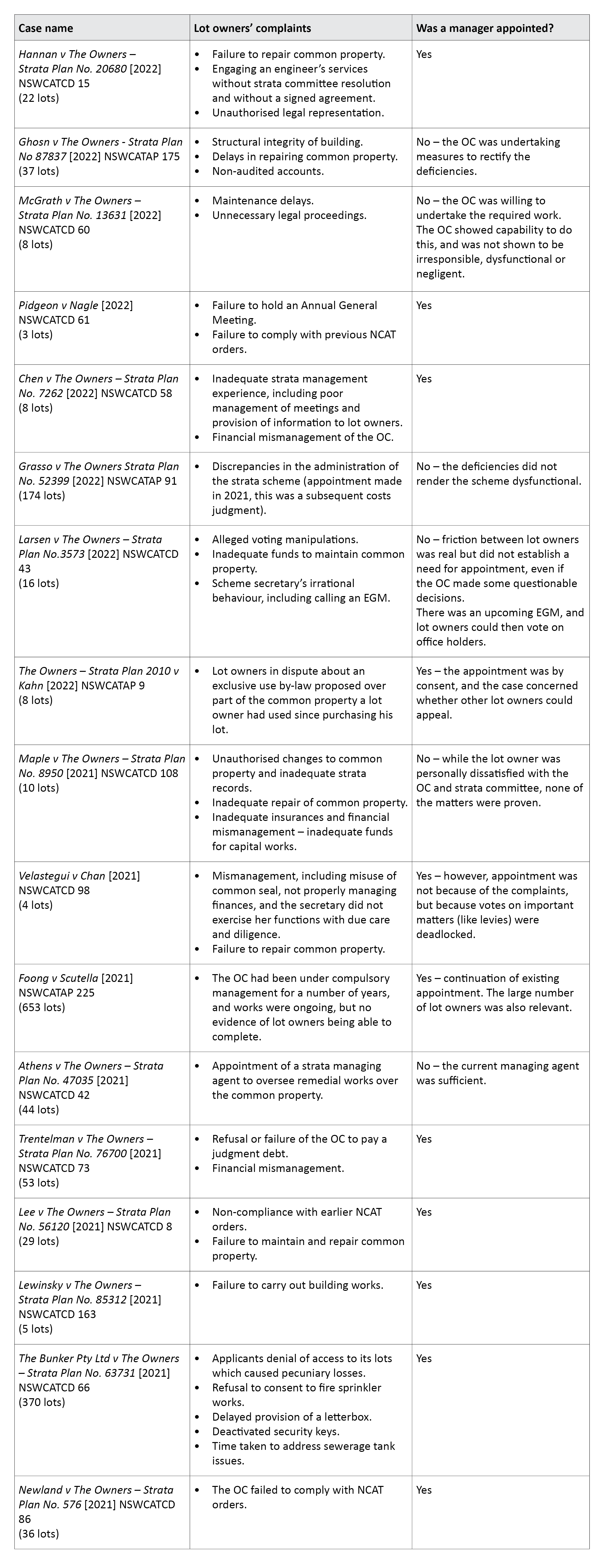29 July 2022
4 min read

Residential strata has benefits – close neighbours, sharing in maintenance and management costs, voting on by-laws, and peace of mind with competent strata management.
There is also an important further element, sometimes necessary in achieving the above outcomes – specific statutory rights given to lot owners. These rights can curtail unfair or oppressive by-laws and also deal with strata mismanagement.1
Without these safeguards, lot owners could find themselves living in the equivalent of undemocratic mini-municipalities where voting blocs of lot owners can oppressively control strata schemes. For example, by passing unfair by-laws, neglecting proper strata management, or not performing required maintenance. Besides making life needlessly stressful, if such conduct remains unchecked lot owners could see their lots devalued – often a person’s home or primary investment.
What can be done if the strata scheme is being mismanaged, and a concerned lot owner does not have the voting ability to change things?
In NSW, lot owners can ask NCAT (the relevant tribunal) to appoint a ‘strata managing agent’. The selected person needs to be a professional strata manager, and NCAT entrusts the person to “exercise all the functions of an owners corporation” for up to two years.2
Giving someone this much power sounds, and in fact is, drastic. During the compulsory appointment period, it is the compulsory manager, not the lot owners, who operates and controls the strata scheme. The compulsory manager effectively becomes the owners corporation (OC). For example, if a compulsory manager considers that a special levy needs to be raised, then a special levy is raised. The lot owners have no say (but a compulsory manager is not allowed to itself act unfairly or oppressively). If a compulsory manager considers some by-laws require alteration, then likewise, this may occur.
Generally, what the compulsory manager intends to achieve during the management period is identified in the NCAT application – there should not to be too many surprises. Still, a compulsory manager has extensive powers and their appointment can be an opportunity for addressing other matters, which may not have been raised before NCAT.
Since 2021, there have been 17 NCAT applications for compulsory managers. Of these, 12 resulted in appointments (one being a reappointment) and five were unsuccessful. The scheme sizes varied, from three lots or units to 653 lots.
While 17 compulsory management applications may sound like a lot, compulsory management is relatively rare given NSW has about 83,000 residential strata schemes together housing more than 1 million people.3 Problems of course do arise, but these tend to resolve, including through competent and collaborative strata management.
The table below provides a snapshot of recent cases, with information about each scheme’s size, the main complaints, and if a compulsory manager was appointed. Where a manager was not appointed, some information about why is given. For example, if the complaints were not proved, or if some lesser measure than compulsory management was needed.
What does NCAT consider?
When determining if compulsory management may be required, NCAT has developed a list of criteria, which a lot-owner applicant must demonstrate. The presence of these hallmarks supports a finding that the necessary level of dysfunction is present:

If you have any questions about your strata management, please contact us below or get in touch with our property experts.
1 See sections 150 and 237 of the Strata Schemes Management Act 2015 (NSW) (SSM Act).
2 There are other remedies too, such as asking NCAT to remove a specific by-law if oppressive (see section 150 of the SSM Act).
3 2020 Australasian Strata Insights published by UNSW’s City Futures Research Centre.
Disclaimer
The information in this article is of a general nature and is not intended to address the circumstances of any particular individual or entity. Although we endeavour to provide accurate and timely information, we do not guarantee that the information in this article is accurate at the date it is received or that it will continue to be accurate in the future.